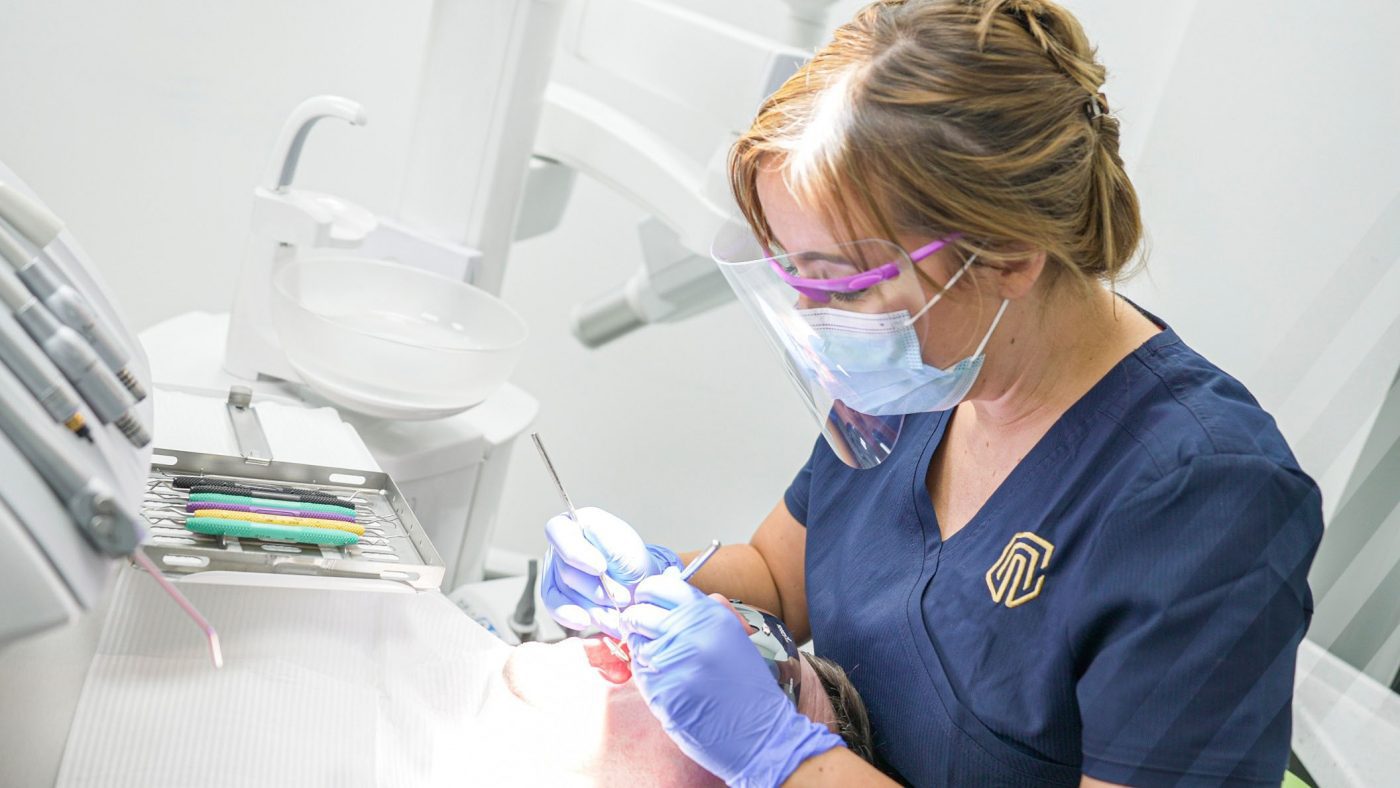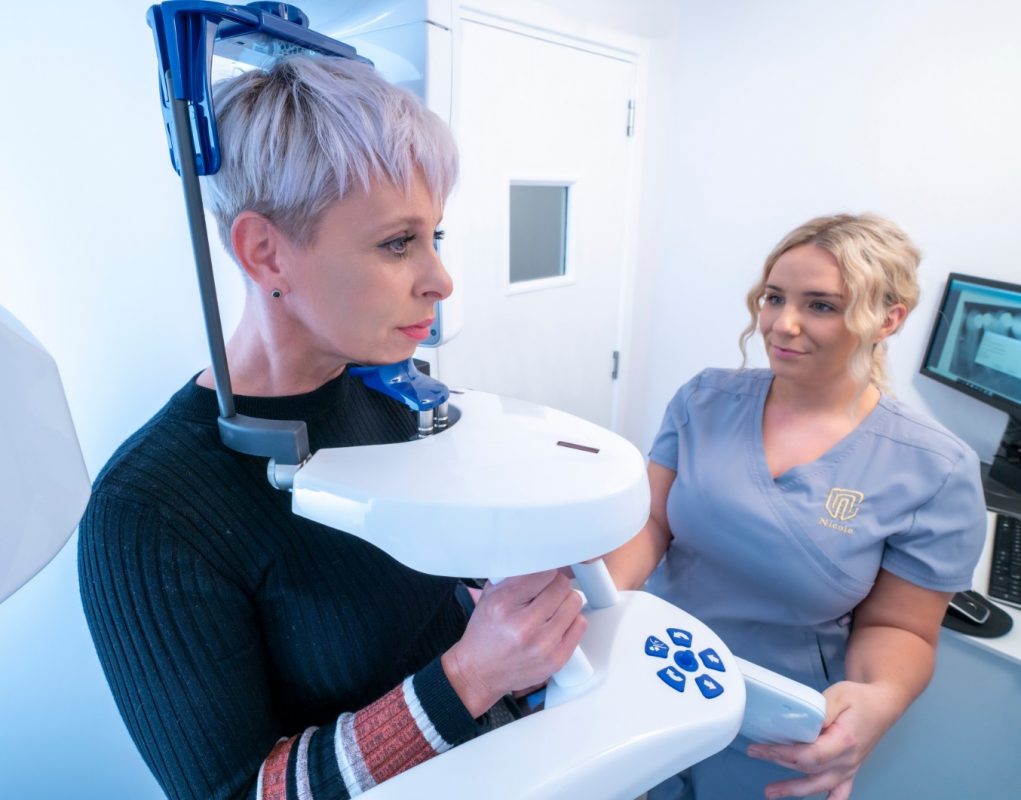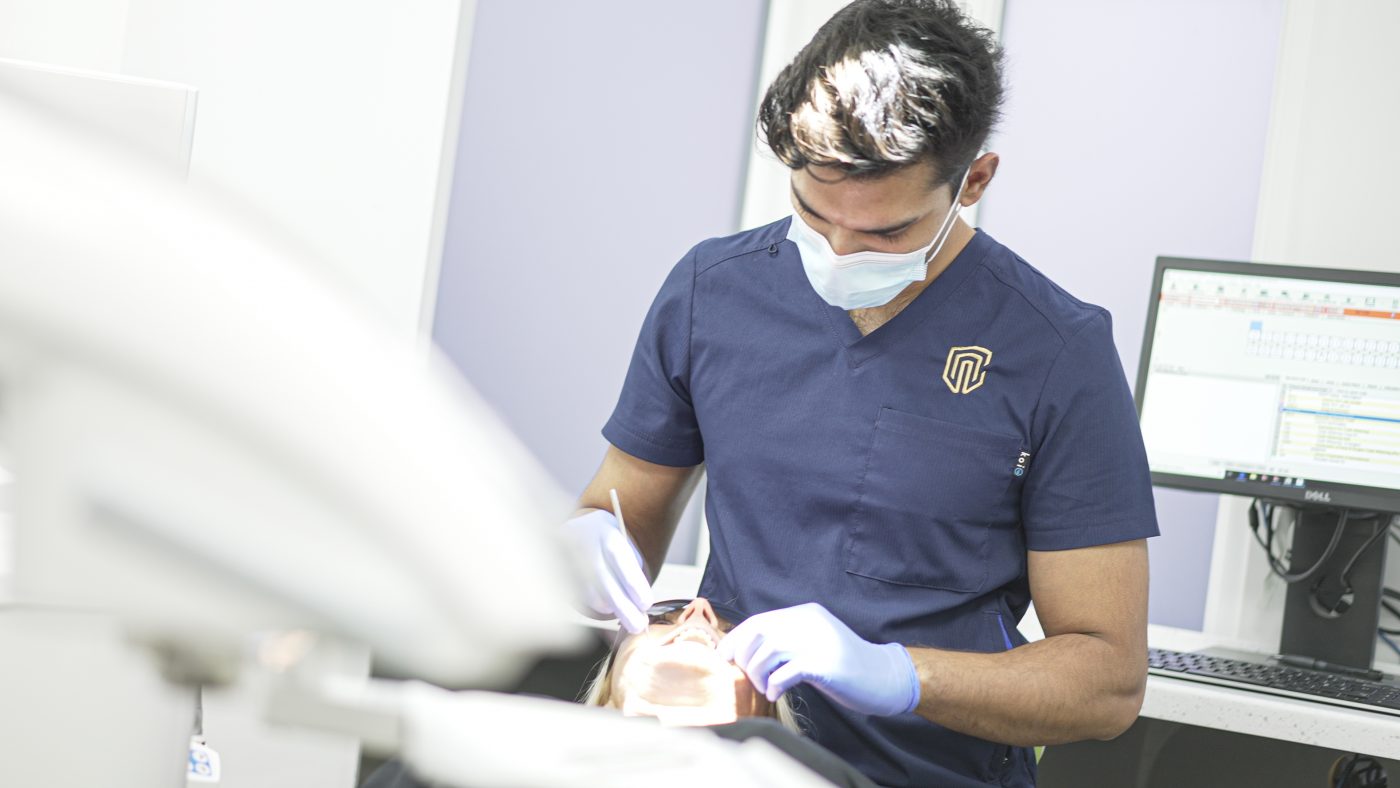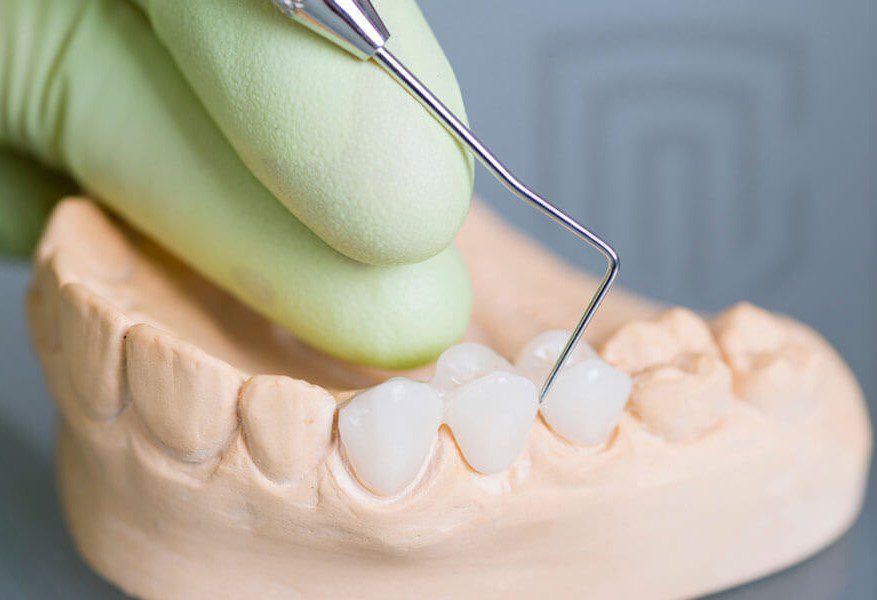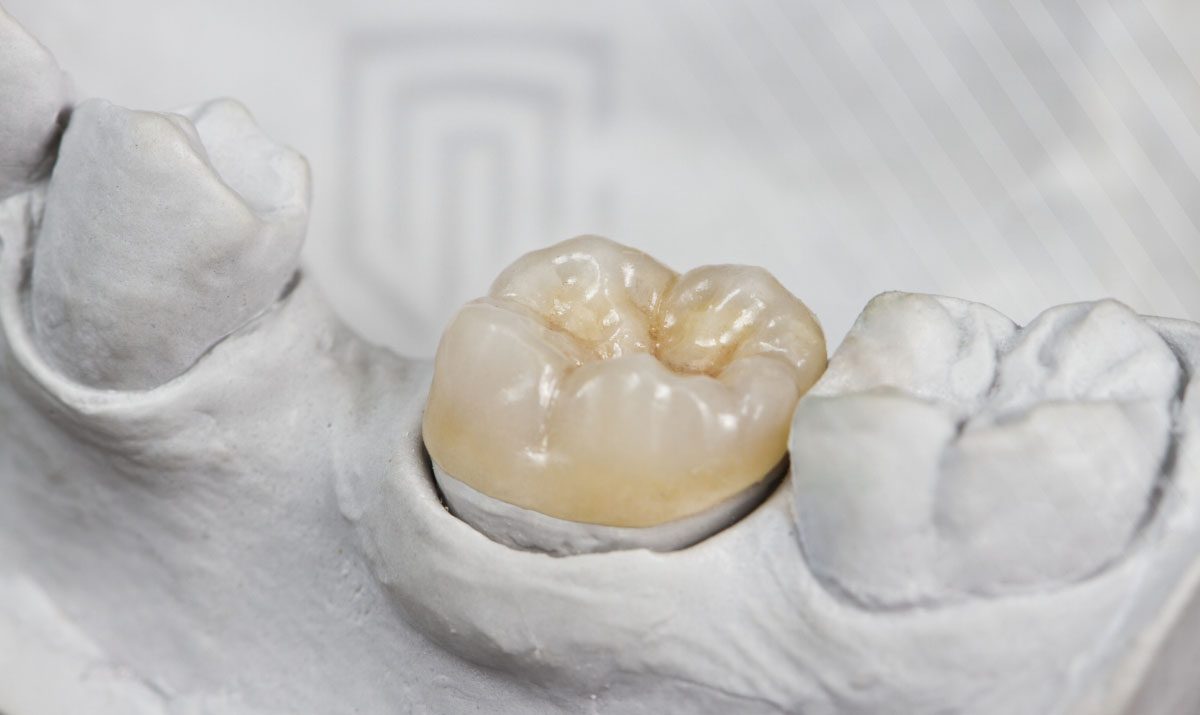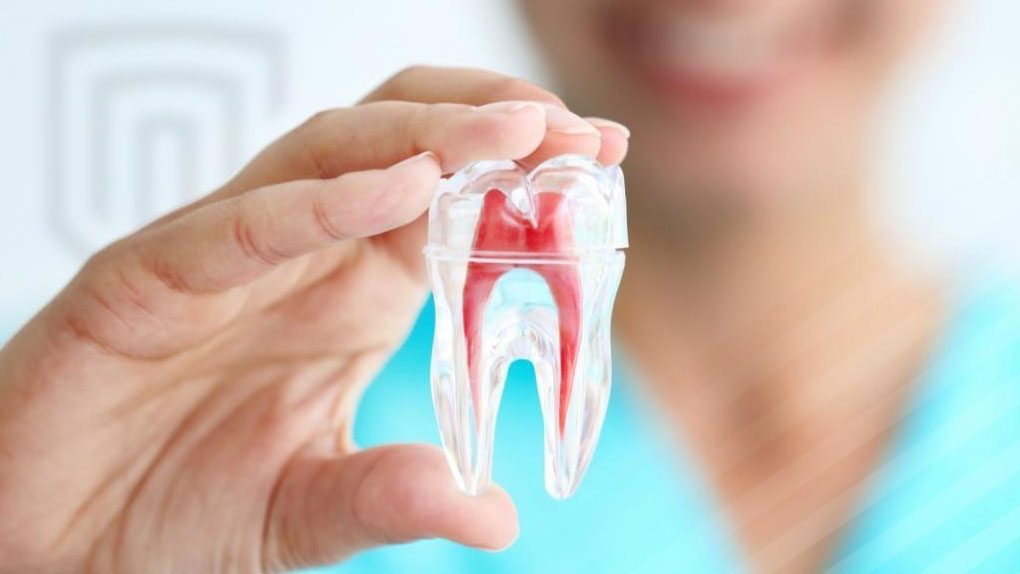Root canal therapy is needed when the pulp in a tooth becomes inflamed and infected from a build-up of bacteria. You’ll know something is wrong because of the pain and discomfort in your teeth, but no worries – that’s what we are here for.
Root canal therapy involves removing the infected pulp from the tooth and cleaning it thoroughly. It is generally something that can be done in a single session, although in some complex cases we might have to extend it over two sessions just to keep you comfortable. A session usually lasts around 45 minutes but might stretch to a couple of hours.
We’ll need to take a few x-rays so our dentists can see exactly what they are dealing with.
Once the tooth has been cleaned and the infected material removed, we’ll insert a filling to keep its structure. We might even recommend finishing off the treatment with a course of whitening or a veneer to hide any discolouration or defects on the front teeth and most likely a crown to support the weakened tooth structure.
The ultimate aim of root canal therapy is to save a tooth and restore its structure and get you pain free.
What does the treatment involve?
Root canal treatment involves isolating the tooth with a special rubber sheet to prevent saliva from further contaminating the pulp during the treatment.
The root canals are cleaned, slightly enlarged and disinfected using disinfecting solutions. Finally, the prepared root canals are sealed off with an inert material.
FAQs
Endodontics is a word derived from the Greek words “endo” (inside) and “dont” (tooth). It is the branch of dentistry that involves the prevention, diagnosis and treatment of disease or injury to the dental pulp.
The most common causes are tooth decay, fractures, trauma, loose fillings and gum disease. These can expose the dental pulp to bacteria and cause infection within the root canal space. If this is left untreated, infection can reach the tip of the root and its surrounding bone forming an abscess. This presents as a hot fluctuant swelling that is severely painful and often accompanied by fever and ill-being.
People often say, “I’d rather have a root canal” for comparing worst case scenarios. Well, this is a common misconception! While toothache often results from infected and inflamed teeth that require root canal treatment, the treatment itself is totally painless as the tooth (and the surrounding tissues) will be numbed using local anaesthetics.
The treatment will also relieve the symptoms that developed from inflamed and infected pulps. It is quite common, however, to experience some discomfort in the area around the tooth over the few days following treatment is part of the healing process. The jaw may also be tender as a result of opening your mouth for an extended period of time. These symptoms are temporary and usually respond very well to normal painkillers.
In most cases, root canal treatment is completed in one visit. However, in certain complicated cases, a second or even a third visit may be needed to complete the treatment and avoid complications.
What are the possible complications for root canal treatment?
There is always a risk of procedural errors and instrument failure such as fracture of a file within a root canal. Fortunately, these complications are not very common and can be dealt with successfully in the majority of cases.
Other complications include an episode of acute flare up following root canal instrumentation. In most cases, this is part of the healing process and can be managed by repeating the disinfection procedures and/or prescription of antibiotics.
Root canal treatment controls pain and infection and therefore saves teeth that otherwise would have to be taken out and replaced with artificial teeth.
Root canal treatments are successful in more than 90% of the cases when treatment is done the first time. Re-treatments have a success rate of 75-90% depending on several factors.
In the unfortunate cases where root canal treatment was not successful, repeating the treatment or surgically cutting the root(s) tip(s) can save the tooth and relieve symptoms.
The only alternative is to extract the tooth. We prefer to save your teeth if possible.
Root canal treated teeth may darken on rare occasions. This can be managed by bleaching the tooth or placing ceramic veneers or crowns.
Root canal treatment is only one step towards restoring your tooth in full function. A final restoration (i.e. filling, crown, onlay..etc) is necessary to prevent re-infection of the root canal space and to protect the tooth against fracture.
Maintaining a good oral hygiene through brushing, flossing and regular scaling and polishing is an essential requirement for the success of any dental procedure. Following root canal treatment, periodic clinical and radiographic examinations should be carried out to monitor the healing process. With proper care, endodontically treated teeth (with good final restorations) can be retained for as long as other vital teeth.
STILL HAVE A QUESTION?
Contact us at North Cardiff and Dental Implants on 029 2267 9999 to find out more about any of our treatments or book a consultation with one of our experienced clinicians.
